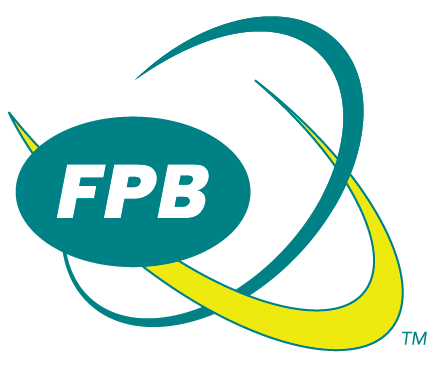E3 analysis of KyMEA contract presented at open meeting
/Consultant makes recommendations for FPB’s participation
At a special meeting Tuesday, the FPB Board of Directors heard presentations discussing the Kentucky Municipal Energy Agency (KyMEA). Consultants, KyMEA members and other interested groups and community members took the opportunity to discuss and respond to recommendations, ask questions and voice concerns about FPB’s participation in KyMEA.
In 205, FPB gave notice to Kentucky Utilities (KU) that it would no longer purchase power through KU once its contract expires in 2019. Since 2009, KU has engaged an annual wholesale electric rate increase charged to FPB. The latest proposed 5.9 percent residential increase, effective July 1, 2017, is a 100 percent pass-thru to KU. None of that increase would stay at FPB.
In an effort to obtain a more economical, flexible and environmentally responsible power supply, FPB executed an agreement with nine other municipal utilities in the state creating KyMEA. The group’s overarching goal is to provide lower, more competitive costs while offering flexibility to its members to achieve community expectations. Taking advantage of the group’s purchasing power, KyMEA conducted competitive power supply procurements and analyses of alternatives to assemble a diverse and cost-effective supply portfolio.
According to FPB staff, participation in KyMEA will improve the Board’s ability to set and adjust its energy course as the community sees fit in the years to come. With this change, there is an estimated $15 million reduction in wholesale power costs in the first three years of participation. As a KyMEA member, FPB expects to maintain rates at levels below the national and regional averages and reduce the recent trend of large annual electric rate increases.
In response to community and FPB board concerns, in April 2017, FPB hired Energy + Environmental Economics, Inc. (E3), a San Francisco-based consultancy specializing in the analysis of electricity sector economics, to analyze the economic and contractual risks and benefits of FPB’s participation in KyMEA.
At the meeting, E3 consultant Michele Chait confirmed that power costs will likely be lower through KyMEA than KU service. In fact, using conservative assumptions, E3 projects KyMEA service to be lower cost than projected KU costs through 2029. However, Chait did question if KyMEA has assembled the least cost portfolio and if renewables had been adequately considered.
She also voiced concern over excess capacity procured citing that if the KyMEA load does not grow and/or agency members cannot re-sell capacity at a high price, members may pay an additional $4-$5 million annually into 2022. Chait suggested because there is currently no transparency of procurement methodology that KyMEA conduct an Integrated Resource Plan. This is essentially a comprehensive blueprint to address peak and energy demand, in addition to supply and procurement goals over a specific period of time.
Other concerns Chait discussed include a lack of agency communication with members, the ability of All Requirements (AR) members to determine procurement, hedging and customer programs (like energy efficiency), cost allocation among members and other ambiguities in the contract that she suggested should be resolved.
Chait said she appreciated the open and positive dialogue she experienced with the agency and members during her two-day stay in Frankfort and encouraged a continuation of that communication among KyMEA members and consultants.
In response to the E3 analysis, consultants representing KyMEA assured the board that it would address the concerns and revise the contract to make clarifications. Fred Haddad, with nFront Consulting, also pointed out that in addition to providing a lower cost option than FPB’s current contract with KU, the AR contract does not limit the implementation of or provide disincentives for energy efficiency programs or grid-scale renewable energy procurement.
Haddad also assured the board of the benefits FPB would realize as a KyMEA member. These benefits include lower, more competitive wholesale power costs, flexibility to incorporate renewables and implement other programs on a more economic scale, direct involvement by all members in decisions impacting power supply and flexibility in KyMEA contracts to meet local power supply-related objectives.
Terry Naulty, general manager of Owensboro Municipal Utilities (OMU), joined the discussion to present a member’s point of view. OMU is the only KyMEA member which generates its own power. As OMU is set to retire its two power plants in the coming years, it is looking to KyMEA as a viable option for its future power supply and access to economies of scale that OMU can’t realize individually.
Naulty expressed OMU’s support of KyMEA’s power supply portfolio saying that it was responsive to member communities. He said KyMEA was designed to meet the needs of its members and that local control is a cornerstone of public power and the agency. Naulty emphasized that KyMEA is not a “risk warehouse” and that the agency must allocate financial and performance risk to its members.
Naulty also stressed the importance of renewables, distributed resources and efficiency improvement, as they will be more cost effective and material in KyMEA. He said significant flexibility has been designed into the KyMEA portfolio to permit inclusion of these options. Member communities can embrace all or some initiatives with known cost implications.
The final presentation was made by Andy McDonald of EnvisionFranklinCounty. In months past, the group has shown opposition to moving forward with the KyMEA contract. McDonald cited similar concerns reported by E3 – ambiguities within the contract, lack of transparency on how rates will be determined and All Requirements members automatically committed to portfolio without input.
The board has the opportunity to accept the E3 report as final at its next regular monthly meeting on June 20.




